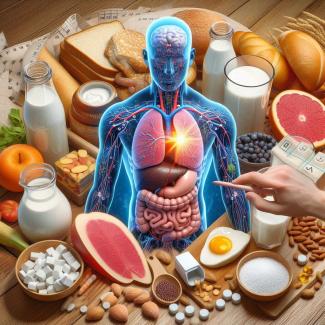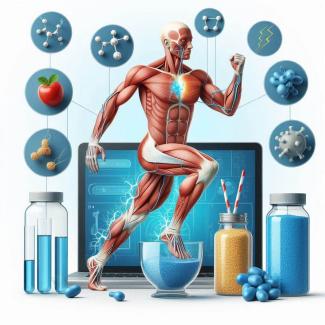
Chromium is an essential trace mineral that plays several important roles in the human body. Although it is required in very small amounts, it is crucial for various physiological processes. Here are some of the key reasons why chromium is important to the human body:
- Glucose Metabolism: Chromium is best known for its role in glucose metabolism. It enhances the action of insulin, a hormone that regulates blood sugar levels. Chromium helps insulin transport glucose from the bloodstream into cells, where it can be used for energy. This makes it important for maintaining stable blood sugar levels.
- Control of Diabetes: Due to its involvement in insulin function, chromium has been studied as a potential supplement for people with type 2 diabetes or those at risk of developing the condition. Some research suggests that chromium supplementation may improve insulin sensitivity and help with blood sugar control.
- Lipid Metabolism: Chromium may also have a role in lipid (fat) metabolism. It has been suggested that chromium supplements can help lower LDL (bad) cholesterol levels and increase HDL (good) cholesterol levels, potentially reducing the risk of cardiovascular disease.
- Weight Management: There is some evidence to suggest that chromium may help with weight management by reducing food cravings and promoting fat loss while preserving lean body mass. However, the research on this is mixed, and chromium is not a magic solution for weight loss.
- Neurological Function: Chromium is involved in brain health and function, although its exact role is not fully understood. Some studies have suggested that it may play a part in cognitive function, including memory and mood regulation.
- Immune Function: There is limited evidence to suggest that chromium may play a role in immune function, although its exact mechanisms in this regard are not well established.
It's important to note that while chromium is essential in small amounts, most people can obtain an adequate intake of chromium through a balanced diet that includes foods like whole grains, broccoli, nuts, and meat. Chromium deficiencies are rare in the general population. However, certain factors, such as poor dietary choices, can lead to inadequate chromium intake. In such cases, supplementation may be considered, but it should only be done under the guidance of a healthcare professional, as excessive chromium intake can have adverse effects.






